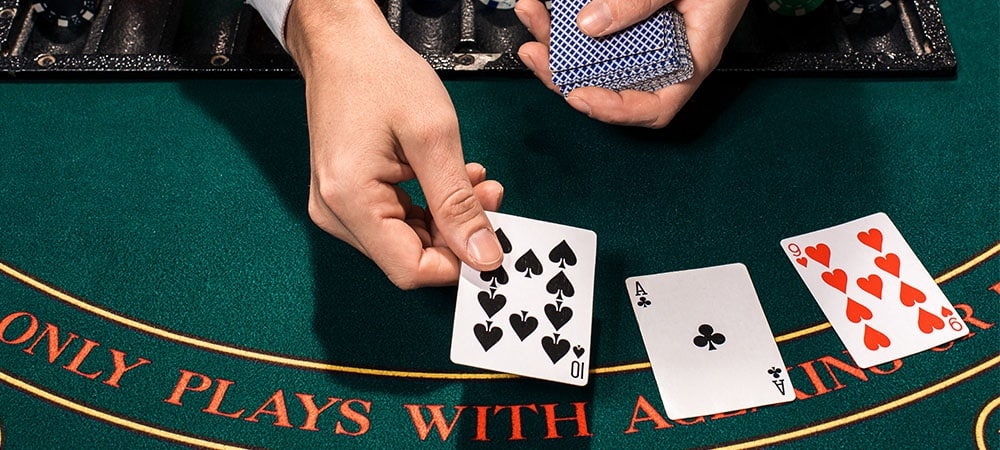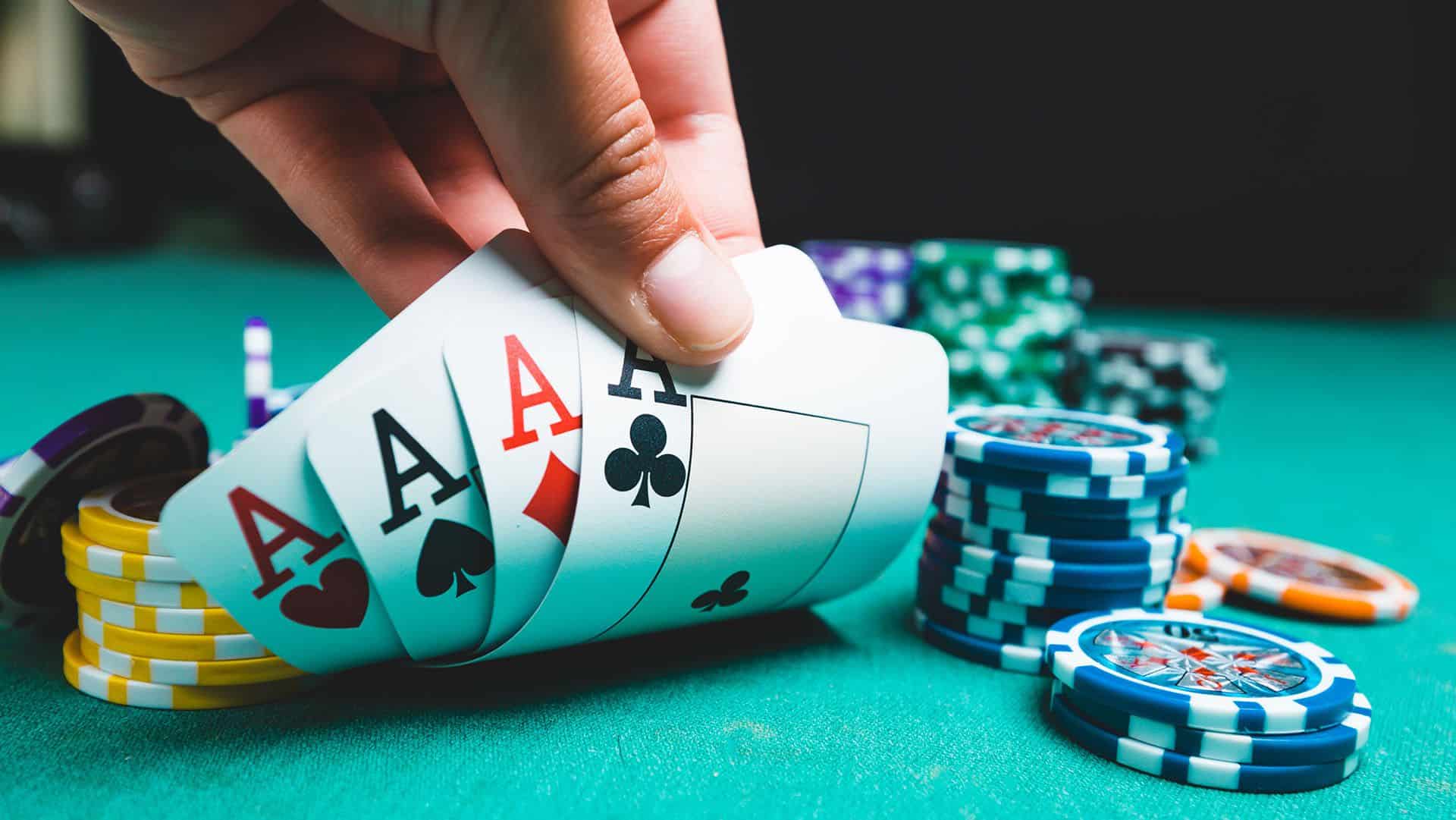Understanding Gambling Addiction
Gambling can go from a fun, harmless diversion to an unhealthy obsession extremely quickly, with very serious consequences.
Maybe you’re betting on sports, or maybe you buy lotto tickets or scratch cards. Maybe you’re gambling in a casino or maybe you’re doing it all online from the comfort of your living room. Wherever and however you’re gambling, it can become a very big strain on your relationships and at work – and most of the time it can lead to absolute financial disaster.
If you continue to gamble despite the negative consequences it has on your life, in your relationships, and at work – you may have a gambling addiction.
Understanding Gambling Addiction
A gambling addiction (pathological gambling or compulsive gambling) is essentially an impulse-control disorder. If you are a compulsive gambler, you quite literally are not able to control your gambling impulses, even when the negative consequences are catastrophic.
Of course, you don’t have to be diagnosed with a gambling disorder to have a problem with gambling. Many people who struggle with gambling addictions also suffer from substance abuse issues or other untreated mental health problems.
The biggest (and most important) difference between casual gamblers and compulsive gamblers is that a casual gambler will set a loss limit and stick to it. On the other hand, someone who is a compulsive gambler struggling with an addiction will not be able to think rationally about quitting even when they are continuously losing large amounts of money.
There is a lot of misinformation out there about gambling. Below are some of the most common myths and misconceptions about gambling.
Myth: Gambling Isn’t a Problem if You Can Afford It
The problems caused by gambling go far beyond financial ruin, although this is the most talked-about and more common problem. Gambling can lead to negative consequences at work, in your relationships and with your health.
Just because you can afford to gamble, doesn’t mean gambling hasn’t become a problem in your life.

Myth: Willpower or Wanting to Stop is Enough to Stop Someone from Gambling
Gambling (much like substance abuse) is not a simple “I want to stop, so I will” solution.
When it comes to any form of addiction, it’s not about the willingness to change or the motivation to quit. Addiction is a disease that needs to be treated in an all-encompassing treatment plan that is targeted and tailored for each individual situation and person.
Myth: You Should Pay Off a Friend or Family Member’s Debt so They Can Stop Gambling
One of the most common excuses gambling addicts use to continue their gambling is that they have debts to pay. They need to gamble just a little more, and as soon as they are on top and can pay back their debts, they will stop. However, this very rarely happens.
Many people who know their loved ones are struggling with a gambling addiction may be tempted to pay off any outstanding debts that a person has, with the thought that if the person owes no more money, they won’t need to gamble.
This appears to be the right thing to do, but bailing the person out will more than likely just enable them to continue gambling with a clean slate.
Myth: I’m Not a Compulsive Gambler, Because I Don’t Gamble Every Day
A gambling problem or addiction is not defined by how often a person gambles, but by the emotional, economic and financial consequences that come from gambling.
If you are a person who, despite the extremely negative consequences you have faced because of your gambling, still continues to gamble – you may very well have a gambling dependency or addiction.

Myth: It’s Not a Substance, So I Can’t Be Addicted
When we think of addiction, we often think about substances like heroin, cocaine, painkillers or methamphetamine. We even consider more “normalized” substance addictions like nicotine and caffeine before we consider linking gambling to addiction.
Addictive behaviours are a very large part of what drives substance abusers to become addicts, and many of those same addictive behaviours are present in chronic gamblers.
Certain activities, like gambling, can be just as addictive as drinking or doing drugs. The kind of euphoria you feel when you’re winning encourages the gambler to keep playing. As with substance abuse, the gambler soon develops a tolerance for gambling – soon, the stakes aren’t high enough and the person begins to do impulsive and rash things to make the high of gambling feel more intense.
Triggers, Relapses, and Withdrawal from Gambling
Similarly, to substance addiction, gambling addiction can have triggers, relapses and even cravings that can make it nearly impossible to quit.
Gambling addiction works similarly to substance abuse addiction in many ways, most importantly that when you gamble, dopamine is released in the brain as much as 10 times more than what is typical. This explains the rush, high or thrill that many gambling addicts equate with continued gambling.
The more you do this, the more you want to do it because you want to keep feeling that thrill.
Also similar to substance addiction, there can be things that trigger you to relapse back into pathological gambling addiction. These can be things like:
- Retirement/job loss/boredom
- Traumatic circumstances that make you seek out feel-good situations, even if they are harmful
- Stress (home or work-related)
- A decrease in mental health and worsening of disorders such as depression, insomnia or anxiety
- Other addictions (alcoholism, drug addiction) that put you in situations where you are more likely to gamble (such as a trip to Las Vegas where you are drinking and near casinos)
According to Scientific American, pathological gamblers and drug addicts share many of the same genetic predispositions for impulsivity and reward-seeking behaviour. Just like a substance addict searches for increasingly strong hits to feel the same high, a compulsive gambler will pursue even riskier gambling ventures.
Additionally, according to this 2008 Study, there is a likelihood that pathological gamblers can experience similar levels of withdrawal symptom severity as alcoholics.
The withdrawal symptoms of a compulsive gambler can look like this:
- Experiencing severe/worsening depression or anxiety
- Anger
- Insomnia or restlessness
- Headaches (often caused by stress)
- Muscle tension or soreness (also caused by stress)

What Are Common Signs of a Gambling Addiction?
Age, mental health disorders, other addictions, medications and personality all come into play when we’re talking about gambling addiction.
Compulsive gamblers are most often younger – middle-aged adults and is quite a bit more common in men than it is in women. Someone who has a competitive and impulsive personality and/or is already struggling with a substance abuse problem is more susceptible to becoming addicted to gambling.
While this information is helpful, it can still be difficult to determine if your gambling (or the gambling of a loved one) is leading to gambling addiction.
How do I know if someone I love has a problem with gambling? How do I know if my love of gambling has turned into a gambling addiction?
If you think you or someone you know is struggling with a gambling addiction, you can look at the signs below or consult this list. Answer the questions as honestly as you can.
Some of the signs you (or someone you know) may be struggling with a gambling addiction can include:
- Feeling the need to keep your gambling a secret, not being honest about how frequently you gamble
- Having trouble controlling your gambling impulses, continuously bidding more and more even if you know you can’t afford it or don’t have good odds of winning
- Continuing to gamble when you know you can’t afford it, maybe maxing out credit cards, perhaps even taking out a second mortgage on your home to continue gambling
- If family members or friends have expressed their concerns about your gambling
- Being preoccupied with gambling, avoiding work or neglecting family life so you can continue to gamble
- Financial struggles like losing your car, taking out a second mortgage or losing your job due to your gambling habits
- You have considered stopping but find it impossible to resist a gambling opportunity
Why do people gamble?
Furthermore, why do people gamble when they know it’s causing them problems? Knowing why people gamble can help you better understand the gambling addict in your life.
The biggest reason many people gamble is that it’s considered “cool”.
Mainstream media has glamourized gambling for decades with movies about big-winner trips to Atlantic City or Vegas – the idea of gambling has been pretty well imprinted in our society.
The second reason why gambling is so prevalent is that it’s so easily accessible. Unlike heroin or cocaine, finding ways to gamble can be as easy as clicking a few buttons on your computer.
Scratch cards and lotto tickets are readily available at practically any convenience store if you’re over the age of 18, and with the introduction of online gambling – it’s possible to gamble from anywhere at any time you want.
The risks associated with continuing your unhealthy gambling addiction can have some fairly devastating outcomes including:
- Experiencing extreme financial ruin: losing a car, your home, your job, gambling away your savings
- Suicidal thoughts/actions and/or violent mood swings/outbursts when you lose
- Legal troubles, for example, gambling in ways that break the law
- Domestic violence and/or abuse due to behavioural changes that have to do with gambling losses
- Losing your job or neglecting your family life to continue your gambling, experiencing job loss or divorce due to your addiction
Gambling and Mental Health
Chronic and compulsive gambling can take an immense toll on your physical and mental health, with gamblers often struggling through depression, anxiety and even self-harming tendencies when the bets don’t go their way.
Excessive gambling very often leads to emotional symptoms that will most likely manifest through the worsening of anxiety, depression, anger management issues, and insomnia. Gambling addicts may stay awake long hours to gamble, always believing the next bid to be their best yet.
People who struggle with a gambling addiction might also be prone to “explosive” outbursts of anger, which can be extremely detrimental to relationships and may even cause job or relationship loss.
In extreme situations, a gambler may even feel tempted to take their own life due to the catastrophic losses (financially and emotionally) that they have been through because of their addiction.

Gambling Addiction Treatment Options
Treatment for gambling addiction may include counselling, cognitive behavioural therapy (CBT), 12-step programs and/or inpatient treatment that will give you the skills to develop healthier coping mechanisms and put you on a new life path that doesn’t include gambling.
According to the diagnostic criteria listed in the DSM-5, to be diagnosed with a gambling addiction, a person must experience or exhibit at least four of the following behaviours within the last 12 months:
- An increased desire or “need” to gamble, using increasing amounts of money in order to feel excited or happy
- Restlessness/boredom/irritability when trying to stop gambling
- Repeated unsuccessful attempt to stop, control or reduce their gambling
- Thinking/obsessing over gambling and making plans to gamble whenever they can
- Gambling as a means of treating depression, anxiety or stress (unhealthy coping mechanism)
- Lying about their gambling activities
- Experiencing relationship or work problems because of their gambling
- Gambling despite not having the money to pay it
- Depending on other people for money to continue gambling, asking people to pay off loans for you or maybe even getting more loans to pay back what you already owe
If you believe you or someone you know fits these diagnostic criteria for gambling addiction, seeking help through therapy and rehabilitation can change your life for the better.
Therapeutic community programs like inpatient rehabilitation centers are a wonderful way to work through your addiction in a supervised setting where counsellors, therapists and others who understand what it’s like to struggle with a gambling addiction can help you address your addiction and underlying social and psychological issues that may have led to your addiction.







